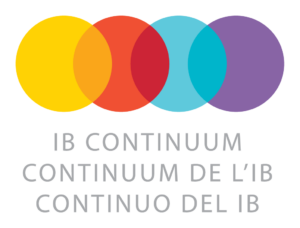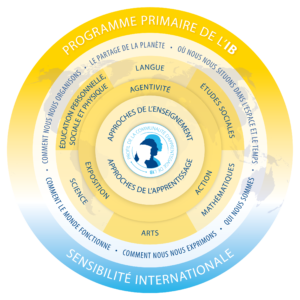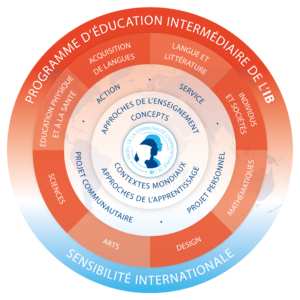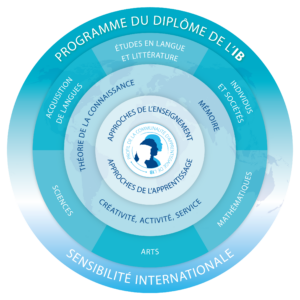
GEMS Académie d’Alexandrie



Our school is honored to be part of the IB World School Community. We are now the first French IB Continuum school in Alexandria and are proud of our trained team and our growing community. We propose all IB programs throughout the entire French school.
IB French School
FACTS & FIGURES
Since October 2020, GAA has been an authorized IB world school for the Primary Years Programme (PYP)
Since November 2024, GAA has been an authorized IB world school for the Middle Years Programme (MYP)
Since December 2023, GAA has been an authorized IB world school for the Diploma Programme (DP)
150+ students following the International Baccalaureate educational framework.
4 languages taught on campus: French as Language of Instruction, English as Language Acquisition, German language classes guided by the Goethe Institute, Arabic as Mother Tongue
IB French School
CURRICULUM
The International Baccalaureate (IB) curriculum framework is a comprehensive and internationally recognized educational program that aims to develop well-rounded, knowledgeable, and engaged learners. It provides a rigorous and holistic approach to education, emphasizing critical thinking, inquiry-based learning, and intercultural understanding.
Primary Years Programme (PYP)

- Primary Years Programme (PYP): This program is for students aged 3 to 11 years and focuses on developing a strong foundation of knowledge, skills, and attitudes. It encourages students to explore different subject areas, develop conceptual understanding, and engage in real-world issues.
Middle Years Programme (MYP)

- Middle Years Programme (MYP): The MYP caters to students aged 11 to 16 years and offers a comprehensive curriculum that balances academic rigor with personal development. It promotes interdisciplinary learning, encourages students to make connections between subjects, and fosters the development of essential skills and attributes.
- The MYP projects, including the community project and the personal project, provide students with the opportunity to showcase their learning and skills in the MYP (Middle Years Programme) curriculum. These projects allow students to apply their knowledge and demonstrate their understanding in a practical and creative manner. The community project focuses on encouraging students to explore their rights and responsibilities in implementing service as action in their community. It emphasizes the importance of community engagement and encourages students to take an active role in making a positive impact. On the other hand, the personal project is an independent endeavor undertaken by each student. It provides them with the freedom to explore their passions, interests, and skills, allowing for a truly personal and creative piece of work. The personal project serves as a comprehensive review of the student’s ability to conduct independent research, planning, organization, and presentation of their work.
- By engaging in these projects, students develop essential skills such as critical thinking, research skills, time management, communication, and self-reflection. These projects not only assess their knowledge and understanding but also foster their personal and social development, encouraging them to become responsible and active members of their communities.
GAA is a Candidate School* for the Middle Years Programme (MYP). This school is pursuing authorization as an IB World School. These are schools that share a common philosophy—a commitment to high quality, challenging, international education that GAA believes is important for our students.
*Only schools authorized by the IB Organization can offer any of its four academic programmes: the Primary Years Programme (PYP), the Middle Years Programme (MYP), the Diploma Programme (DP), or the Career-related Programme (CP). Candidate status gives no guarantee that authorization will be granted. For further information about the IB and its programmes, visit www.ibo.org
Diploma Programme (DP)

- The IB Diploma Programme is an academically challenging and balanced programme of education, with final examinations, that prepares students aged 16 to 19 for success at university and in life beyond. It has been designed to address the intellectual, social, emotional and physical well-being of students. The programme has gained recognition and respect from the world’s leading universities.
- DP students must choose one course from each of five subject groups delivering a breadth of knowledge and understanding in language and literature, individuals and societies, the sciences and mathematics. Furthermore, students must also choose either an arts course from the arts group or a second course from one of the other subject groups. DP courses can be taken at higher level (HL) or standard level (SL). At least three, and not more than four, are taken at HL (240 teaching hours), while the remaining courses are taken at SL (150 teaching hours). SL courses ensure students are exposed to a range of disciplines that they might otherwise opt out of, and HL courses allow students to spend more time with subjects they are more interested in by exploring options in addition to the SL core curriculum. In this sense, all DP courses, regardless of whether they are SL or HL, are integral to the programme. Students can study and take examinations in English, French or Spanish. Two courses are classified as interdisciplinary, meaning that they satisfy the requirements of more than one subject group.
– Literature and performance (studies in language and literature subject group and the arts subject group)
– Environmental systems and societies (individuals and societies subject group and sciences subject group)
In addition to disciplinary and interdisciplinary study, the DP features three core elements that broaden students’ educational experience and challenge them to apply their knowledge and skills.
- The Diploma Programme core The extended essay (EE) requires students to engage in independent research through an in-depth study of a question relating to one of the DP subjects they are studying. The world studies EE option allows students to focus on a topic of global significance, which they examine through the lens of at least two DP subjects. Theory of knowledge (TOK) develops a coherent approach to learning that unifies the academic disciplines. In this course on critical thinking, students inquire into the nature of knowing and deepen their understanding of knowledge as a human construction. Creativity, activity, service (CAS) emphasizes helping students to develop their own identities in accordance with the ethical principles embodied in the IB mission statement and the IB learner profile. CAS complements a challenging academic programme in a holistic way, providing opportunities for self-determination, collaboration, accomplishment and enjoyment. It involves students in a range of activities alongside their academic studies throughout the DP. The three strands of CAS are creativity (exploring and extending ideas leading to an original or interpretive product or performance), activity (physical exertion contributing to a healthy lifestyle) and service (collaborative and reciprocal engagement with the community in response to an authentic need).
Reference: Please Visit International Baccalaureate Website
